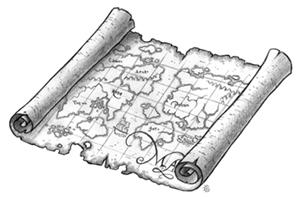 I was discussing Church history and the importance of it as an acedemic discipline for Christians with a friend. This person stated that his or her particular denomination does not care as much about Church history as mine. I found this to be an odd statement since I have always found Church history to be an exciting way to learn of the ways in which God has been working in the life of His people.
I was discussing Church history and the importance of it as an acedemic discipline for Christians with a friend. This person stated that his or her particular denomination does not care as much about Church history as mine. I found this to be an odd statement since I have always found Church history to be an exciting way to learn of the ways in which God has been working in the life of His people.Church history is the unfolding of God's sovereign plan of redemption. In Church history you see great battles that have been fought for the honor of Lord Jesus as well as low points where people who once claimed the name of Jesus deny him. You get to witness entire nations covenant to live unto Christ as well as heathen lands and people won to the gospel and converted to the Lord.
Church history is found at the beginning of the Word of God with the famed "and he begat" statements. The unfolding of the Hebrew idea of Toledoth (generations) is Church history. This glorious history that began with the seed of the woman, continued through the fathers, through kings and through harlots. This history and seed is seen in David, through the prophets of old and even at times in captive lands. The history continues in Matthew. "This is the book of the generation of Jesus Christ."
The book of Acts guided by Luke the physician to the God fearing Theophilus is the history of the Church. How does the book of Acts end? The book of Acts ends with an opening, a wide opening that calls out for the people of God to watch and to take note. Take note of what the Lord is doing in the earth.
What is the purpose of Church history? It is not dry and dull academic excercises. Church history is the story of God redeeming his people. Are you part of this story?
More on Church History
Puritan History IQ
Discussion points:
-Do you enjoy Church history? Why or Why not?
-Could you talk to a non-Christian about where we got our Bible?
-How about our doctrine of the Trinity?
-Do you know the history of your congregation or denomination?
-Can you admit to your Puritan IQ?
Soli Deo Gloria!
4 comments:
One analogy I give to explain the importance of history is memories. All societies (big or small) are built on memories. Our families are what they are because of the memories that we have. Take way the memories, and we have no family. If we love our families, then we cherish the memories that we have. Similarly, take away the memories from the Church, and there is no Church. If we love the Church, then we can't help but love its memories (history). That's why God always calls us to remember.
One thing concerning history (not Christian per se) is that the natives of the South East told the French that New Orleans was a terrible place to build a city due to its frequent flooding.
The French built levees and forgot about what was said.
ok, as the friend you were talking with from the different denomination, I should make a clarification. There are many people in my denomination that do enjoy church history a great deal. yes, we can see how theology has developed and how
people have thought for 2,000 years. it is important to know how we got
here....i.e. reformation, luther, calvin, zwingli, dewitt,
johnson...eshelman.(that's a joke)
"Church history is the unfolding of God's sovereign plan of
redemption."
I believe Scripture is the unfolding of
God's sovereign plan of redemption. Ok, that's about it.
The history of the Church is one of the most inspiring accounted events ever. Although a lot of things have been said against it, the Church continues to flourish. The history of the Church may be described as a culmination of events that led to the rise of Christ and his impending return.
Post a Comment